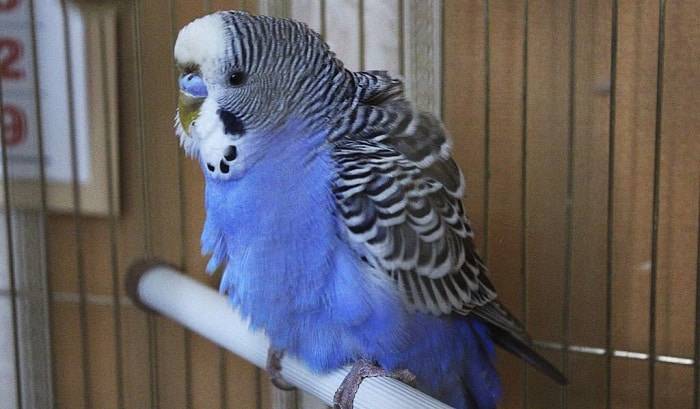As parakeet and budgie owners, we are attentive to the well-being of our feathered companions and always strive to understand their behaviors and needs. If you’ve noticed that your parakeet is puffed up and shaking, it’s natural to be concerned about their health and welfare. This article aims to shed light on some potential reasons for this behavior, while emphasizing the importance of monitoring your parakeet closely and seeking appropriate professional advice when needed. By exploring various factors such as temperature regulation, illness or discomfort, fear or stress, molting, and other potential contributors, we can better understand what might be causing your parakeet’s puffing up and shaking, enabling you to provide the necessary care and attention for your beloved pet.


Why is my parakeet puffed up and shaking?
If your parakeet is puffed up and shaking, it could indicate several possible reasons, some of which may require attention or further investigation. Here are a few potential explanations:
- Temperature regulation: Parakeets often puff up their feathers to trap warm air close to their bodies when they feel cold. The shaking could be a result of shivering, which helps generate body heat. Ensure that the temperature in the room or cage is appropriate for your parakeet and provide a warm and draft-free environment.
- Illness or discomfort: Puffing up and shaking can be signs of illness or distress in parakeets. If your bird exhibits other symptoms such as lethargy, loss of appetite, or changes in droppings, it is crucial to consult with an avian veterinarian to rule out any underlying health issues.
- Fear or stress: Parakeets may puff up and shake when they are scared or stressed. This response is a natural defense mechanism. Assess the environment for any potential stressors, such as loud noises, sudden changes, or the presence of predators (including other pets). Create a calm and secure environment for your parakeet to help alleviate stress.
- Molting: Parakeets undergo regular molting cycles, during which they shed old feathers and grow new ones. Molting can sometimes cause puffing up and shaking as their bodies go through this natural process. Monitor your parakeet’s behavior and look for signs of excessive feather loss, skin irritation, or abnormal molt patterns that may warrant veterinary attention.
- Other potential factors: There could be other factors contributing to your parakeet’s behavior, such as dietary imbalances, lack of sleep, or reproductive behaviors (if your parakeet is of breeding age). It’s important to consider these possibilities and assess your bird’s overall well-being.
It’s crucial to observe your parakeet closely, noting any additional symptoms or changes in behavior. If you’re concerned about your parakeet’s health or well-being, it’s best to consult an avian veterinarian who can provide a proper diagnosis and guidance tailored to your specific situation.
When You Should Seek Professional Help
Knowing when to seek professional help for your parakeet is crucial to ensure their health and well-being. While some minor changes in behavior may not be cause for immediate concern, certain signs indicate that it’s time to consult an avian veterinarian. Here are some situations when seeking professional help is recommended:
- Persistent or worsening symptoms: If your parakeet’s puffing up and shaking persist or worsen over time, it’s essential to consult a veterinarian. This could be an indication of an underlying health issue that requires professional diagnosis and treatment.
- Loss of appetite or weight: If your parakeet shows a sudden or prolonged loss of appetite, experiences weight loss, or shows a lack of interest in food, it could be a sign of illness or other health concerns. Seeking veterinary attention is necessary to identify and address the underlying cause.
- Lethargy or decreased activity: A significant decrease in your parakeet’s activity level or overall energy could indicate a potential health problem. If your bird appears unusually tired, weak, or lacks its usual vigor, it’s advisable to consult a veterinarian promptly.
- Respiratory issues: Respiratory symptoms such as wheezing, labored breathing, frequent sneezing, or nasal discharge should never be ignored. These signs may point to respiratory infections or other respiratory disorders that require professional intervention.
- Changes in droppings: Keep a close eye on your parakeet’s droppings. If you notice persistent changes such as diarrhea, excessive watery droppings, or bloody droppings, it is crucial to seek veterinary care. Abnormalities in droppings can be indicative of gastrointestinal issues or infections.
- Injury or physical trauma: If your parakeet has suffered an injury, such as a fall, collision, or an attack from another pet, professional assistance is necessary. Birds can hide their pain or injuries well, so it’s important to have them examined to rule out any internal damage.
- Behavioral changes: Any sudden or drastic changes in your parakeet’s behavior, such as aggression, excessive feather plucking, self-harm, or abnormal vocalizations, should be addressed by a veterinarian. These changes may be indicative of underlying health, environmental, or emotional issues.
Remember, when in doubt or concerned about your parakeet’s well-being, it’s always better to err on the side of caution and seek professional help. Avian veterinarians have the expertise and experience to diagnose and treat various avian health conditions, ensuring the best care for your feathered friend.
How Much Semen Does A Horse Ejaculate?
How fast are horses in the Grand National?
What Happened To Pug From 12 O Clock?
What does a blinking blue light on a smoke detector mean?
How To Sell Wild Horses Rdr2 Online?
This story originally appeared on Mostexpensivething

